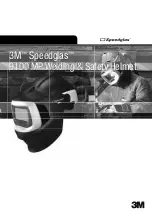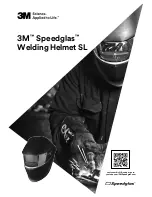
PERIODIC MAINTENANCE AND MINOR REPAIR
6-21
6
EAU21750
Tires
To maximize the performance, durabil-
ity, and safe operation of your motor-
cycle, note the following points
regarding the specified tires.
Tire air pressure
The tire air pressure should be checked
and, if necessary, adjusted before each
ride.
WARNING
EWA10500
●
The tire air pressure must be
checked and adjusted on cold
tires (i.e., when the temperature
of the tires equals the ambient
temperature).
●
The tire air pressure must be ad-
justed in accordance with the
riding speed and with the total
weight of rider, passenger, car-
go, and accessories approved
for this model.
WARNING
EWA10510
Proper loading of your vehicle is im-
portant for several characteristics of
your vehicle, such as handling,
braking, performance and safety. Do
not carry loosely packed items that
can shift. Securely pack your heavi-
est items close to the center of the
vehicle, and distribute the weight
evenly from side to side. Properly
adjust the suspension for your load,
and check the condition and pres-
sure of your tires. NEVER OVER-
LOAD YOUR VEHICLE. Make sure
that the total weight of the cargo, rid-
er, passenger, and accessories
(cowling, saddlebags, etc. if ap-
proved for this model) does not ex-
ceed the maximum load of the
vehicle. Operation of an overloaded
vehicle could cause tire damage, an
accident, or even injury.
Tire inspection
Tire air pressure (measured on cold
tires):
0.0–90.0 kg (0–198 lb):
Front:
225 kPa (33 psi) (2.25 kgf/cm²)
Rear:
250 kPa (36 psi) (2.50 kgf/cm²)
90.0–182.0 kg (198–401 lb):
Front:
250 kPa (36 psi) (2.50 kgf/cm²)
Rear:
290 kPa (42 psi) (2.90 kgf/cm²)
High-speed riding:
Front:
250 kPa (36 psi) (2.50 kgf/cm²)
Rear:
290 kPa (42 psi) (2.90 kgf/cm²)
Maximum load*:
182.0 kg (401 lb)
* Total weight of rider, passenger, car-
go and accessories
1. Tire sidewall
2. Tire wear indicator
3. Tire tread depth
5AH17.book Page 21 Tuesday, April 8, 2003 11:35 AM
















































